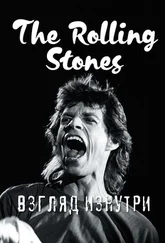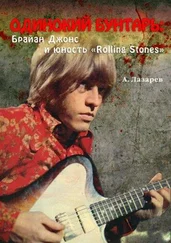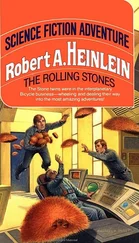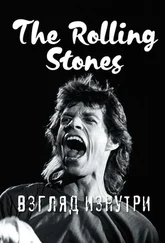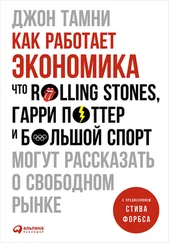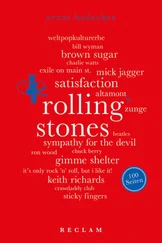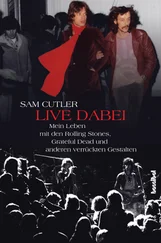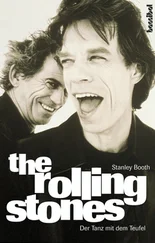O'Henry - Rolling Stones
Здесь есть возможность читать онлайн «O'Henry - Rolling Stones» весь текст электронной книги совершенно бесплатно (целиком полную версию без сокращений). В некоторых случаях можно слушать аудио, скачать через торрент в формате fb2 и присутствует краткое содержание. Жанр: Классическая проза, Юмористическая проза, на английском языке. Описание произведения, (предисловие) а так же отзывы посетителей доступны на портале библиотеки ЛибКат.
- Название:Rolling Stones
- Автор:
- Жанр:
- Год:неизвестен
- ISBN:нет данных
- Рейтинг книги:5 / 5. Голосов: 1
-
Избранное:Добавить в избранное
- Отзывы:
-
Ваша оценка:
- 100
- 1
- 2
- 3
- 4
- 5
Rolling Stones: краткое содержание, описание и аннотация
Предлагаем к чтению аннотацию, описание, краткое содержание или предисловие (зависит от того, что написал сам автор книги «Rolling Stones»). Если вы не нашли необходимую информацию о книге — напишите в комментариях, мы постараемся отыскать её.
Rolling Stones — читать онлайн бесплатно полную книгу (весь текст) целиком
Ниже представлен текст книги, разбитый по страницам. Система сохранения места последней прочитанной страницы, позволяет с удобством читать онлайн бесплатно книгу «Rolling Stones», без необходимости каждый раз заново искать на чём Вы остановились. Поставьте закладку, и сможете в любой момент перейти на страницу, на которой закончили чтение.
Интервал:
Закладка:
INTRODUCTION
This the twelfth and final volume of O. Henry's work gets its title from an early newspaper venture of which he was the head and front. On April 28, 1894, there appeared in Austin, Texas, volume 1, number 3, of The Rolling Stone, with a circulation greatly in excess of that of the only two numbers that had gone before. Apparently the business office was encouraged. The first two issues of one thousand copies each had been bought up. Of the third an edition of six thousand was published and distributed FREE, so that the business men of Austin, Texas, might know what a good medium was at hand for their advertising. The editor and proprietor and illustrator of The Rolling Stone was Will Porter, incidentally Paying and Receiving Teller in Major Brackenridge's bank.
Perhaps the most characteristic feature of the paper was "The Plunkville Patriot," a page each week--or at least with the regularity of the somewhat uncertain paper itself--purporting to be reprinted from a contemporary journal. The editor of the Plunkville Patriot was Colonel Aristotle Jordan, unrelenting enemy of his enemies. When the Colonel's application for the postmastership in Plunkville is ignored, his columns carry a bitter attack on the administration at Washington. With the public weal at heart, the Patriot announces that "there is a dangerous hole in the front steps of the Elite saloon." Here, too, appears the delightful literary item that Mark Twain and Charles Egbert Craddock are spending the summer together in their Adirondacks camp. "Free," runs its advertising column, "a clergyman who cured himself of fits will send one book containing 100 popular songs, one repeating rifle, two decks easywinner cards and 1 liver pad free of charge for $8. Address Sucker & Chump, Augusta, Me." The office moves nearly every week, probably in accordance with the time-honored principle involving the comparative ease of moving and paying rent. When the Colonel publishes his own candidacy for mayor, he further declares that the Patriot will accept no announcements for municipal offices until after "our" (the editor's) canvass. Adams & Co., grocers, order their $2.25 ad. discontinued and find later in the Patriot this estimate of their product: "No less than three children have been poisoned by eating their canned vegetables, and J. O. Adams, the senior member of the firm, was run out of Kansas City for adulterating codfish balls. It pays to advertise." Here is the editorial in which the editor first announces his campaign: "Our worthy mayor, Colonel Henry Stutty, died this morning after an illness of about five minutes, brought on by carrying a bouquet to Mrs. Eli Watts just as Eli got in from a fishing trip. Ten minutes later we had dodgers out announcing our candidacy for the office. We have lived in Plunkville going on five years and have never been elected anything yet. We understand the mayor business thoroughly and if elected some people will wish wolves had stolen them from their cradles . . . ."
The page from the Patriot is presented with an array of perfectly confused type, of artistic errors in setting up, and when an occasional line gets shifted (intentionally, of course) the effect is alarming. Anybody who knows the advertising of a small country weekly can, as he reads, pick out, in the following, the advertisement from the "personal."
Miss Hattie Green of Paris, Ill., is
Steel-riveted seam or water power
automatic oiling thoroughly tested
visiting her sister Mrs. G. W. Grubes
Little Giant Engines at Adams & Co.
Also Sachet powders Mc. Cormick Reapers and
oysters.
All of this was a part of The Rolling Stone, which flourished, or at least wavered, in Austin during the years 1894 and 1895. Years before, Porter's strong instinct to write had been gratified in letters. He wrote, in his twenties, long imaginative letters, occasionally stuffed with execrable puns, but more than often buoyant, truly humorous, keenly incisive into the unreal, especially in fiction. I have included a number of these letters to Doctor Beall of Greensboro, N. C., and to his early friend in Texas, Mr. David Harrell.
In 1895-1896 Porter went to Houston, Texas, to work on the Houston POST. There he "conducted" a column which he called "Postscripts." Some of the contents of the pages that follow have been taken from these old files in the fair hope that admirers of the matured O. Henry will find in them pleasurable marks of the later genius.
Before the days of THE ROLLING STONE there are eleven years in Texas over which, with the exception of the letters mentioned, there are few "traces" of literary performance; but there are some very interesting drawings, some of which are reproduced in this volume. A story is back of them. They were the illustrations to a book. "Joe" Dixon, prospector and inveterate fortune-seeker, came to Austin from the Rockies in 1883, at the constant urging of his old pal, Mr. John Maddox, "Joe," kept writing Mr. Maddox, "your fortune's in your pen, not your pick. Come to Austin and write an account of your adventures." It was hard to woo Dixon from the gold that wasn't there, but finally Maddox wrote him he must come and try the scheme. "There's a boy here from North Carolina," wrote Maddox. "His name is Will Porter and he can make the pictures. He's all right." Dixon came. The plan was that, after Author and Artist had done their work, Patron would step in, carry the manuscript to New York, bestow it on a deserving publisher and then return to await, with the other two, the avalanche of royalties. This version of the story comes from Mr. Maddox. There were forty pictures in all and they were very true to the life of the Rockies in the seventies. Of course, the young artist had no "technique"--no anything except what was native. But wait! As the months went by Dixon worked hard, but he began to have doubts. Perhaps the book was no good. Perhaps John would only lose his money. He was a miner, not a writer, and he ought not to let John go to any expense. The result of this line of thought was the Colorado River for the manuscript and the high road for the author. The pictures, fortunately, were saved. Most of them Porter gave later to Mrs. Hagelstein of San Angelo, Texas. Mr. Maddox, by the way, finding a note from Joe that "explained all," hastened to the river and recovered a few scraps of the great book that had lodged against a sandbar. But there was no putting them together again.
So much for the title. It is a real O. Henry title. Contents of this last volume are drawn not only from letters, old newspaper files, and The Rolling Stone, but from magazines and unpublished manuscripts. Of the short stories, several were written at the very height of his powers and popularity and were lost, inexplicably, but lost. Of the poems, there are a few whose authorship might have been in doubt if the compiler of this collection had not secured external evidence that made them certainly the work of O. Henry. Without this very strong evidence, they might have been rejected because they were not entirely the kind of poems the readers of O. Henry would expect from him. Most of them however, were found in his own indubitable manuscript or over his own signature.
There is extant a mass of O. Henry correspondence that has not been included in this collection. During the better part of a decade in New York City he wrote constantly to editors, and in many instances intimately. This is very important material, and permission has been secured to use nearly all of it in a biographical volume that will be issued within the next two or three years. The letters in this volume have been chosen as an "exihibit," as early specimens of his writing and for their particularly characteristic turns of thought and phrase. The collection is not "complete" in any historical sense.
1912.
H.P.S.
Читать дальшеИнтервал:
Закладка:
Похожие книги на «Rolling Stones»
Представляем Вашему вниманию похожие книги на «Rolling Stones» списком для выбора. Мы отобрали схожую по названию и смыслу литературу в надежде предоставить читателям больше вариантов отыскать новые, интересные, ещё непрочитанные произведения.
Обсуждение, отзывы о книге «Rolling Stones» и просто собственные мнения читателей. Оставьте ваши комментарии, напишите, что Вы думаете о произведении, его смысле или главных героях. Укажите что конкретно понравилось, а что нет, и почему Вы так считаете.

